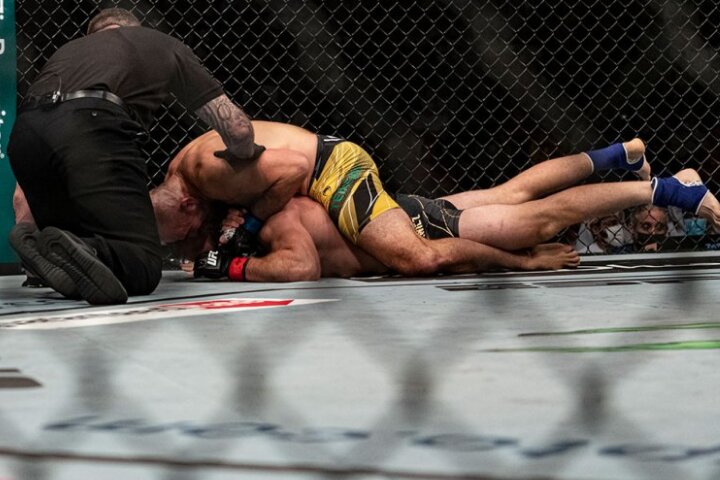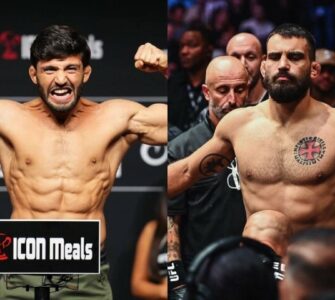Since its start in 1993, the Ultimate Fighting Championship, or UFC, has climbed to the top of the mixed martial arts world. Dana White, the CEO who never seems to rest, has pushed the UFC far beyond what anyone could have imagined. It’s not just a sport; it’s a global phenomenon, attracting fans from every corner of the earth.
Now, with their sights set on expanding in Saudi Arabia, the UFC is gearing up for yet another thrilling chapter in its already impressive story.
Bridging Continents: UFC’s Strategic Moves in the Middle East
The UFC has made stars out of fighters like Conor McGregor, Jon Jones, and Islam Makhachev, making them as well-known as the biggest names in boxing. Although most UFC fights happen in the United States, the organization has fans worldwide, and events outside its home country are always a big deal. The UFC has found a welcoming place in the Middle East in the United Arab Emirates.
An event in Abu Dhabi in 2010 only strengthened the relationship, especially when the UFC created Fight Island in Yas Island during the COVID-19 pandemic. This setup kept the fights going and reached fans globally. Recently, the UFC and Abu Dhabi Tourism decided to keep working together until 2028, which means more events in Abu Dhabi.
But the UFC is now looking at Saudi Arabia, a place quickly becoming known as a top spot for big fights. It’s a new challenge for the UFC as they plan their next moves in the Middle East. It’s an exciting time for fans, especially those looking to Bet UFC Prelims and get in on the action from anywhere in the world.
The New Frontier: UFC’s Bold Step into Saudi Arabia
The world of combat sports has been rapidly changing, and nowhere is this more evident than in Saudi Arabia. The country hosted its first major boxing match in 2018, a few years ago. Since then, Saudi Arabia has quickly become a hub for some of the biggest fights in boxing and influencer events. The presence of heavyweight titans like Anthony Joshua, Oleksandr Usyk, Tyson Fury, and Deontay Wilder fighting on Saudi soil wasn’t something many saw coming. Turki Alalshikh, the head of the General Entertainment Authority, has been instrumental in this shift. He’s focused on bringing only the top names to the Kingdom, aiming to revive heavyweight boxing, which had seen a downturn in interest.
In the last year, Alalshikh has turned his attention to mixed martial arts (MMA), promising to bring the best of MMA to Saudi Arabia. The Professional Fighters League (PFL), backed by Saudi efforts, organized an impressive event featuring top fighters from their roster and the Bellator franchise, signaling Saudi Arabia’s serious intentions in the MMA world. While the UFC’s initial attempt to enter the Saudi market faced challenges, with their first event being postponed, the situation underlines the growing importance of Saudi Arabia in the global combat sports landscape. Dana White and the UFC are now tasked with meeting high expectations for their rescheduled event, underscoring Saudi Arabia’s significant role in redefining combat sports globally.
Stars Align: UFC Icons in the Saudi Spotlight
The presence of UFC heavyweight champion Jon Jones at the recent PFL vs. Bellator event and Conor McGregor at the Tyson Fury vs. Francis Ngannou bout in Saudi Arabia certainly caught the eye of many, including the UFC’s top brass.
McGregor, especially vocal, expressed his frustration over not securing a fight and lauded Saudi Arabia’s contributions to combat sports. Such prominent figures’ spotlight on Saudi Arabia underscores the UFC’s eagerness to make a grand entrance in the Kingdom.
However, without a title match on the card—something that has become a staple for UFC events in the UAE—the organization faces the challenge of introducing creative elements to captivate the Saudi audience and maintain the high standards it has set globally.
Conclusion
The UFC’s strategic pivot towards Saudi Arabia highlights the organization’s global aspirations and the Kingdom’s rising influence in the international sports arena. This move represents a confluence of ambition, culture, and entertainment, promising to introduce the thrilling spectacle of mixed martial arts to a new audience.
With the UFC overcoming initial hurdles and capitalizing on the star power of athletes like Jon Jones and Conor McGregor, its foray into Saudi Arabia is poised to further enrich the combat sports landscape.
As the UFC writes its next chapter in the Middle East, it demonstrates its unmatched ability to adapt and evolve, ensuring its place as a perennial powerhouse in the world of sports.


















